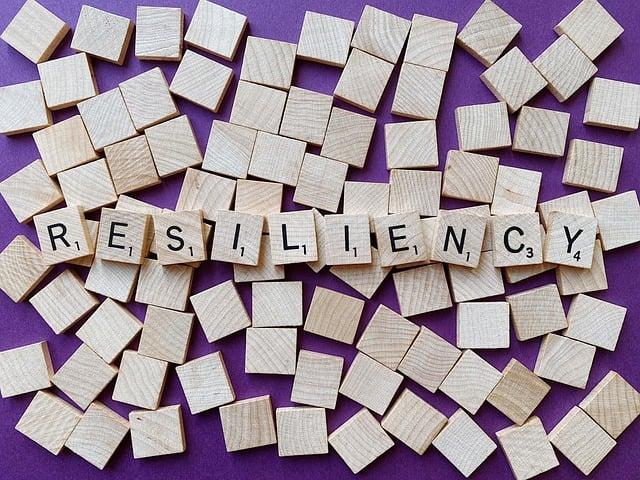In the intricate tapestry of Pakistan’s development, public policy emerges as both a guiding thread and a formidable obstacle. With a diverse population and a wealth of resources, the nation stands on the precipice of potential, yet often finds itself ensnared in the complexities of governance and decision-making. As the challenges of economic disparity, environmental sustainability, and social equity loom large, the need for effective public policy becomes increasingly urgent. This article embarks on a journey through the multifaceted landscape of public policy in Pakistan, exploring the critical challenges that shape its development narrative. By delving into the interplay between governance, societal needs, and economic ambitions, we aim to illuminate pathways toward meaningful solutions that foster growth, inclusivity, and resilience in the face of uncertainty.
Unraveling the Complexities of Governance in Pakistan
The intricacies of governance in Pakistan present a unique tapestry woven with historical, social, and political threads. Public policy challenges arise from a multitude of factors, including the federal structure, regional disparities, and varied stakeholder interests. These complexities often result in inconsistent policy applications, uneven resource distribution, and significant gaps in service delivery. Key issues impacting governance encompass:
- Political Instability: Frequent changes in government disrupt long-term policy frameworks.
- Corruption: Widespread corruption undermines trust and effectiveness in public institutions.
- Socio-Economic Disparities: Striking differences in wealth and access to services hinder equitable development.
- Judicial Challenges: Delayed justice hampers accountability and enforcement of laws.
Addressing these challenges requires a holistic approach to public policy formulation and implementation. Effective governance calls for a clearer alignment between policies and local needs, fostering community engagement and participation. The following table summarizes potential strategies to enhance governance and tackle persistent public policy hurdles:
| Strategy | Description |
|---|---|
| Decentralization | Empowering local governments to strengthen accountability and tailor services. |
| Transparency Initiatives | Implementing open data policies to promote trust and reduce corruption. |
| Stakeholder Engagement | Involving citizens in the policy-making process for greater relevance and acceptance. |
| Capacity Building | Strengthening institutional frameworks to improve governance processes. |

Innovative Approaches to Economic Resilience and Growth
In the quest for sustainable development, Pakistan can leverage innovative approaches that not only address immediate economic challenges but also foster long-term resilience. Harnessing technology stands at the forefront of these strategies. By prioritizing digital transformation across sectors, the government can enhance efficiency, transparency, and accessibility. Key initiatives could include:
- Smart Agriculture: Implementing IoT devices to monitor crop health and optimize resource usage.
- Fintech Solutions: Expanding access to financial services, especially for underserved regions.
- Green Energy Projects: Investing in renewable energy infrastructure to reduce dependency on fossil fuels.
Moreover, fostering a culture of entrepreneurship can significantly contribute to economic dynamism. By creating incubation hubs and providing mentorship programs, the government can cultivate a vibrant startup ecosystem. A focus on specific sectors, such as eco-tourism and information technology, can drive job creation and skill development. The following table illustrates potential growth sectors in the near future:
| Sector | Growth Potential | Key Opportunities |
|---|---|---|
| Eco-Tourism | High | Natural reserves, cultural heritage |
| Information Technology | Very High | Software development, outsourcing |
| Renewable Energy | Medium | Solar, wind, and biomass |

Strengthening Education and Health Systems for Sustainable Impact
To truly foster sustainable development in Pakistan, it is imperative to revitalize education and health systems, ensuring they are not only robust but also equitable. By focusing on quality education, we can empower the younger generation to tackle the pressing challenges of today. This requires strategic investments in teacher training and curriculum development that reflect contemporary needs. Key actions include:
- Adopting technology-driven learning solutions to enhance engagement and accessibility.
- Implementing community-driven health initiatives to foster ownership and increase participation.
- Collaborating with local NGOs to amplify educational outreach in underprivileged areas.
Moreover, strengthening healthcare systems is crucial for a healthier population that can contribute to economic growth. Comprehensive reforms must focus on expanding access to critical services while improving the quality of care provided. Essential strategies should encompass:
- Improving infrastructure to accommodate rural and urban demands effectively.
- Enhancing training programs for healthcare professionals to meet international standards.
- Prioritizing mental health as an integral part of overall health policies.
| Goals | Strategies |
|---|---|
| Access to Quality Education | Incorporate technology and resource allocation |
| Universal Healthcare Coverage | Implement community health outreach programs |
| Health Professional Training | Standardize educational requirements and continuous education |

Harnessing Technology and Community Engagement for Effective Policy Implementation
Embracing innovative technologies and fostering community engagement represent pivotal strategies for surmounting public policy challenges in Pakistan’s developmental landscape. Digital platforms have revolutionized communication between policymakers and citizens, ensuring that feedback loops are efficient and effective. This real-time interaction not only enhances transparency but also builds trust within the community. By deploying tools such as mobile applications and social media campaigns, policymakers can spread awareness about critical issues while simultaneously gathering valuable insights directly from the populace, allowing for policies to be shaped by the very people they affect.
Moreover, community engagement initiatives can be augmented through the use of data analytics, which enables a more nuanced understanding of local needs and preferences. By utilizing geographic information systems (GIS) in conjunction with surveys and community forums, public policymakers can identify priority areas and tailor their interventions accordingly. This holistic approach ensures that resources are allocated where they are most needed, thereby maximizing the impact of policy implementation. The combination of technology and local involvement not only empowers communities but also paves the way for sustainable development practices that align with the aspirations of the citizens.
Key Takeaways
In the intricate tapestry of Pakistan’s development, public policy emerges as both a compass and a map, guiding the nation through the rugged landscapes of socioeconomic challenges and opportunities. As we reflect on the complexities that have shaped past decisions and the potential paths that lie ahead, it becomes evident that fostering a culture of inclusive dialogue, data-driven decision-making, and adaptive strategies is crucial.
Navigating these public policy challenges requires not only a nuanced understanding of local contexts but also the courage to innovate and the humility to learn from both successes and setbacks. As stakeholders—from policymakers to community leaders and citizens—engage in this critical discourse, they must remain steadfast in their commitment to a shared vision: a prosperous, equitable, and sustainable Pakistan.
In this journey, each step taken toward effective policy implementation resonates beyond borders, setting a precedent for emerging nations facing similar hurdles. The roadmap ahead may be fraught with obstacles, yet it is also rich with potential, waiting for those willing to chart a course with resilience and cooperation. Together, let us embark on this quest for transformation, ensuring that the aspirations of today lay the foundation for a brighter tomorrow.



